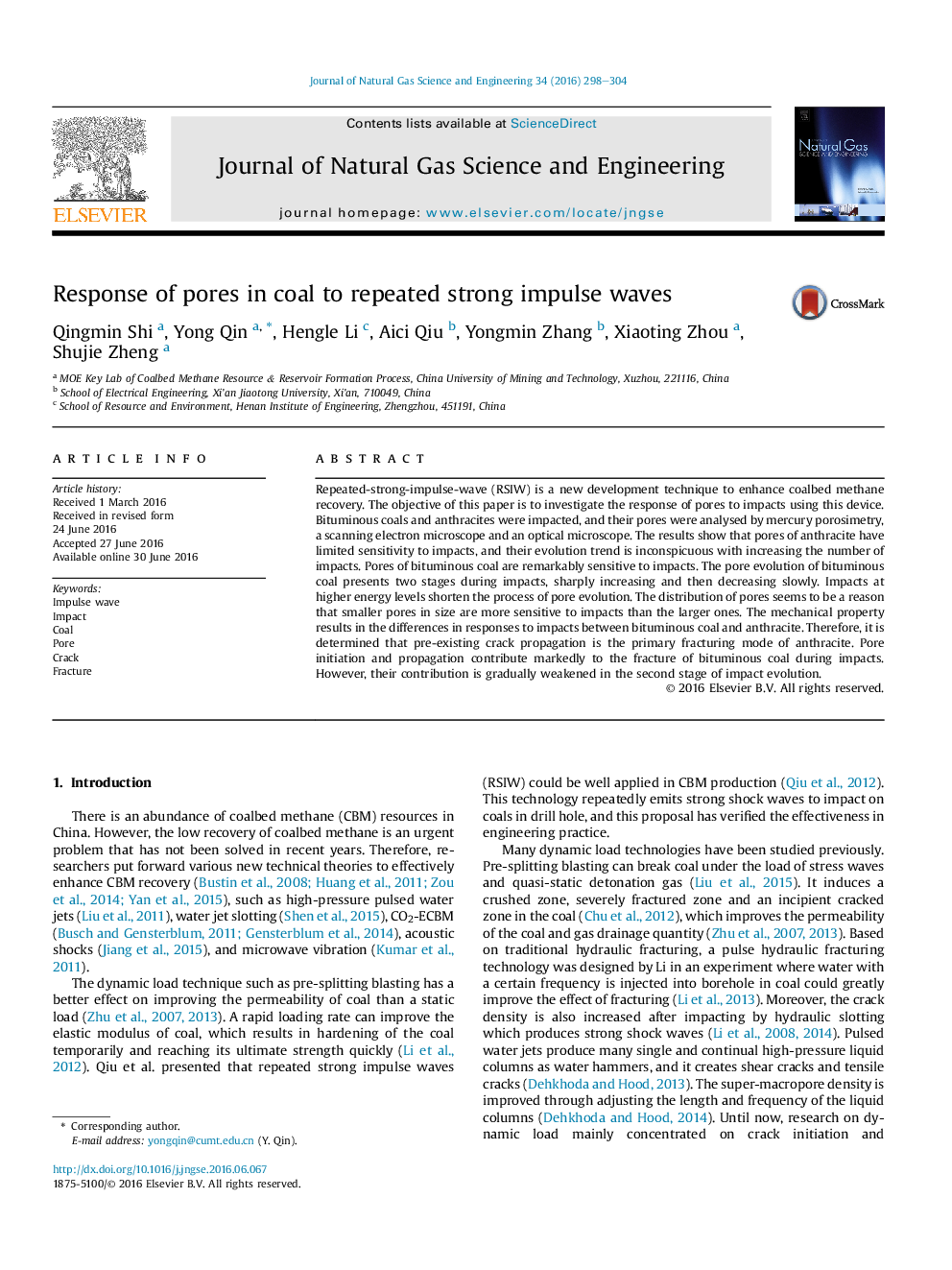| Article ID | Journal | Published Year | Pages | File Type |
|---|---|---|---|---|
| 8128633 | Journal of Natural Gas Science and Engineering | 2016 | 7 Pages |
Abstract
Repeated-strong-impulse-wave (RSIW) is a new development technique to enhance coalbed methane recovery. The objective of this paper is to investigate the response of pores to impacts using this device. Bituminous coals and anthracites were impacted, and their pores were analysed by mercury porosimetry, a scanning electron microscope and an optical microscope. The results show that pores of anthracite have limited sensitivity to impacts, and their evolution trend is inconspicuous with increasing the number of impacts. Pores of bituminous coal are remarkably sensitive to impacts. The pore evolution of bituminous coal presents two stages during impacts, sharply increasing and then decreasing slowly. Impacts at higher energy levels shorten the process of pore evolution. The distribution of pores seems to be a reason that smaller pores in size are more sensitive to impacts than the larger ones. The mechanical property results in the differences in responses to impacts between bituminous coal and anthracite. Therefore, it is determined that pre-existing crack propagation is the primary fracturing mode of anthracite. Pore initiation and propagation contribute markedly to the fracture of bituminous coal during impacts. However, their contribution is gradually weakened in the second stage of impact evolution.
Related Topics
Physical Sciences and Engineering
Earth and Planetary Sciences
Earth and Planetary Sciences (General)
Authors
Qingmin Shi, Yong Qin, Hengle Li, Aici Qiu, Yongmin Zhang, Xiaoting Zhou, Shujie Zheng,
